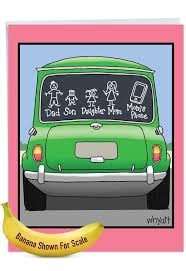
Dear Ms. Smartphone: We got a new car that has an Android Auto dashboard and it feels much safer than my old car. I can answer a cell phone in the car from a click on the steering wheel. But, both my husband and Dad are insisting that I not use a cell phone in the car. They do not have my responsibilities! We have two children and a new baby. It seems like I am on the road all day picking up or dropping off. When I use the cell phone in the car the time passes faster and I do not have as much catch up at home. I am a safe driver and of the opinion that they are not experienced with these newer features. Leah, Claremont
Dear Leah: You have probably seen those yellow stickers on the back of car windows that say “Baby on Board” or “Precious Cargo.” No matter what age group we drive it’s vital to keep that in mind.
On the subject of Android Auto & CarPlay safety, I am not an expert and technology has evolved since I first started this column. Researchers typically evaluate 3 sources of cell phone distraction in the car: visual distraction, manual distraction, and cognitive distraction. Your hands-free dashboard helps reduce the manual distraction for incoming calls. It’s a little trickier to reduce visual distractions for outgoing calls but voice commands can dial the phone number (or text). Older people, perhaps like your Dad, have been found to be slower to understand and deploy such features.
That said, there is more to safety than physically using a phone to call or text. Cognitive distraction occurs because we have limited processing ability. The mental faculties we need to keep that 3,500 lb people-mover positioned between lines and avoid collisions are also used for speech, visualization, and memory- the stuff of two way conversation. For more insight into cognitive distraction, look here. Most of the time we have the cognitive bandwidth to process the road and the talk. Yet it’s those one-off moments when you do not, and there are unanticipated hazards. Drivers cannot organize or anticipate these.
Reduce Time & Effort:
To reduce the risk, here are two recommendations: first, make these hands-free phone calls very short. A short ‘yes’ or ‘no’ conversation, or ‘be there in ten minutes’ is going to be less cognitively taxing than an intricate discussion say with your loan agent or insurance company. Second, limit the number of these conversations. The longer you spend driving and chatting, the greater the likelihood that you will encounter some danger.
That said, you have another option. In the spirit of what your husband and Dad recommend, you can always pull off to the side of the road or find a parking lot. Take your longer calls (or texts) from there.
Modeling You!
But, I have a deeper concern. You mentioned that you have three children in the car. When you spend time there on the phone you are implicitly teaching these youngsters that is an acceptable behavior. So, when they become teens you should not be surprised if they too drive with phones and model you. Young children constantly observe what their parents do and say. I am guessing that you do not want to teach them that phones come first, family time comes second, and road safety is third.
So, not to shame you- mothers have too much on their plates- but it is important to engage in real conversations with your children, even when you are firmly planted in the driver’s seat. Some of our best conversations can be side by side, looking out the window. You will learn a lot about your childrens’ days at school, friendships, and current interests if you ask questions and listen carefully. If it’s hard to get started, engage them with wayfaring (see DearSmartphone column) and the local geography. If that doesn’t suit you, seek out a local carpool with nearby families.
It’s hard to imagine travel in cars without phones these days- they help us navigate to places, anticipate the traffic, and update those last minute shopping lists. But phones should never squeeze out the precious moments we have with our children, and send them a message that cell phones get answered first.

Leave a Reply
You must be logged in to post a comment.